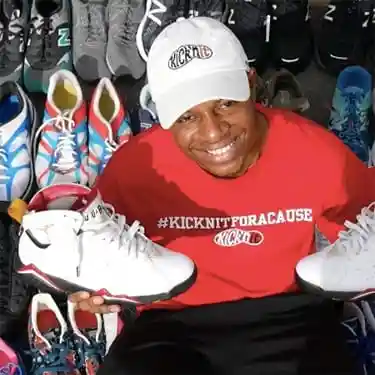The music industry has been on an unending evolution since its start. From the first time a page of sheet music was printed and sold, the invention of the phonograph, to the rise and fall of analog, the industry has constantly changed and warped itself to operate as seamlessly as possible. As a result, the present-day music industry has a lot of intricate parts. For someone not well versed in the business, it can be intimidating and confusing. To understand the music industry as a whole, let’s break it down by each area to take a closer look at how it all comes together to create the music business.
The Recording Industry

The recording industry is the branch involved in music production and encompasses recording, marketing, and distribution. This subsection of the music industry is where record labels have the most influence. There are three major record labels in the U.S. that account for around 70% of the market; Universal Music Group, Warner Music Group, and Sony Music Group. These labels oversee sub-labels specializing in different music genres or serve as a vanity label for a major artist. For instance, Universal Music Group currently controls 19 sub-labels which in turn have their own sub-labels.
There are three major record labels in the U.S. that account for around 70% of the market; Universal Music Group, Warner Music Group, and Sony Music Group.
Before Recording
The process of discovering an artist to releasing an album or song can be lengthy. First, record labels find artists through their Artist & Repertoire (A&R) departments. An A&R scout goes to live shows, listens to demo recordings, and tracks trends on social media and streaming platforms like Soundcloud to find talent to present to their manager. Then, if the artist is signed to a deal, the production process begins. Most of the time, A&R will remain involved in the recording sessions and process by finding producers and songwriters to pair with an artist. They may also oversee studio time to ensure the finished song or album aligns with the record label’s overall vision for the artist.
Sometimes artists act as their own songwriters, but it’s not unusual for producers to be hired to help complete an album. Producers create the sound and structure of a song and guide the artist’s studio session. Producers work in tandem with other studio personnel — audio engineers, sound mixers, and mastering engineers. Together they produce a final, polished album or song which is turned to the record label.
After the Record is Complete
The label’s marketing and publicity teams come in after an artist finishes recording. The objective of marketing is to familiarize artists with potential consumers. These strategies include radio promotion, media interviews, and television appearances. Finally, the recording is distributed to consumers digitally (streaming, downloads) and physically (vinyl, CDs, etc.). Until 2020, artists were allowed to include merchandise (apparel and memorabilia) and ticket presales with album releases. The practice was known as bundling, and it was used to improve album sales. Although Billboard has changed its guidelines and disallowed bundling, merchandise continues to be a prominent source of revenue for artists with licensed music merchandise accounting for $3.48 billion as recently as 2018.
Notable Career Options In The Recording Industry:
Music Producer, A&R Scout/Coordinator, Music Publicist
Publishing and Licensing

Distribution to consumers is only one revenue stream for artists. A recording becomes intellectual property and copyrighted once it is complete. It’s standard practice for record labels to maintain ownership of one copyright, called a master recording. The master is the original recording from which all future copies are reproduced. The other copyright is the composition — essentially, the sheet music and the lyrics — owned by the songwriter (in some cases, this is further divided between composers and lyricists).
Music publishers are responsible for ensuring songwriters are paid correctly and on schedule when their songs are used or incorporated into other music. Publishing payments are commonly known as royalties. Royalties have three different classifications: mechanical royalties — generated by sales, performance royalties — paid when a radio station or a venue broadcasts the music during an event, and synchronization royalties — paid when music is paired with visual media such as a film, television show, or video game. Each royalty has an associated license that publishers handle. For example, streaming music falls under performance royalties, with the most prominent performance rights organizations in the U.S. being ASCAP, BMI, and SESAC.
Synchronization licensing has emerged as one of the most lucrative avenues for artists and songwriters. The subsection of this industry is called music supervision. Film and television studios employ music supervisors to choose songs and negotiate the licensing fees for the rights to use those songs. Music supervisors are also routinely hired by video game companies and advertising firms.
Synchronization licensing has emerged as one of the most lucrative avenues for artists and songwriters.
Notable Career Options In Publishing and Licensing:
Music Supervisor, Music Publisher, Royalty Administrator
Touring and Live Music

Touring and live performance is a crucial component of the music industry. Performing — either on tour or appearing at a standalone event such as a festival — serves a dual purpose of generating publicity and revenue for the artist. Touring often coincides with an album release and involves the artist traveling between cities to perform for fans and consumers. It may seem as if touring is straightforward, but it’s one of the most complex aspects of the industry and requires teamwork.
It may seem as if touring is straightforward, but it’s one of the most complex aspects of the industry and requires teamwork.
When an artist is ready to tour, they hire a booking agent. Record labels may have booking agents in-house, but sometimes they work in tandem with a booking agency. The booking agent finds venues in chosen cities and negotiates the artists’ compensation for performing in the venue. Payment for the artist is based on the potential to sell tickets; the more popular the artist, the more likely it is that the forum will sell out, thereby requiring a more significant fee paid to the artist.
On the other end representing venues are promoters, also referred to as talent buyers. Talent buyers work on behalf of venues like clubs, bars, theaters, and arenas to find suitable artists to play shows. Venues make money by selling tickets, so the talent buyer’s primary goal is to keep the venue’s calendar booked to capacity.
Overseeing the entire process is the tour manager. They go on the road with the artist to handle day-to-day tasks. They also manage the technical crew, consisting of sound engineers, lighting technicians, production & stage managers.
Notable Career Options In Touring and Live Music:
Booking Agent, Tour Manager, Sound Engineer
If you’re interested in working in the music industry and exploring which of the many music career paths may be right for you, check out Yellowbrick’s Ultimate Music Career Guide.




